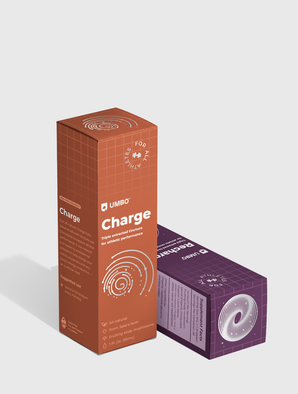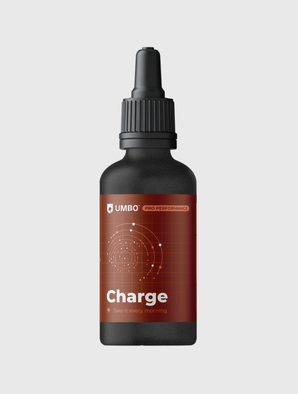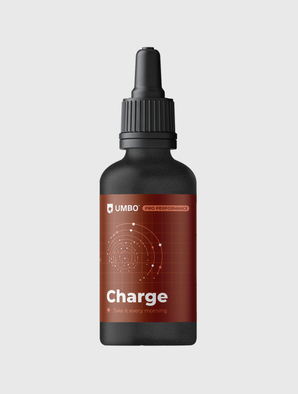When it comes to maintaining a healthy lifestyle, anti-inflammatory foods are essential. These foods help reduce chronic inflammation, linked to various health issues like heart disease, diabetes, and arthritis. For anyone who actively uses their minds and bodies, such as athletes, these anti-inflammatory foods
However, a crucial category of anti-inflammatory foods is frequently overlooked in mainstream charts: functional mushrooms. In this article, we explore why functional mushrooms are missing from food inflammation charts and why they deserve a place alongside other well-known anti-inflammatory foods.
Understanding anti-inflammation food lists and charts
Food inflammation lists and charts guide people toward foods that help reduce inflammation in the body. These charts typically feature items rich in antioxidants, polyphenols, omega-3 fatty acids, and other bioactive compounds known for their anti-inflammatory properties. Commonly listed foods include berries, leafy greens, nuts, fatty fish, and olive oil. These foods are praised for their ability to combat oxidative stress and reduce inflammation markers in the body.
Take, for example, this article from Harvard Health Publishing, which lists foods that can help combat chronic inflammation and reduce the risk of diseases like heart disease and diabetes. Are functional mushrooms mentioned anywhere in the article? Nope.
It's the same story for this article from Johns Hopkins, this article from Healthline, and this article from WebMD.
It seems odd that none of these very reputable sources of health information would include anything about the most potent fighters of inflammation on the planet.
The power of functional mushrooms to fight inflammation
Functional mushrooms such as Reishi, Lion’s Mane, Cordyceps, and Chaga are potent allies in the fight against inflammation — some of the most potent anti-inflammatories on the planet. These mushrooms contain unique bioactive compounds, including beta-glucans, polysaccharides, and triterpenoids, which have been shown to help modulate the immune system and reduce inflammation.
How Reishi fights inflammation
Reishi mushrooms are rich in triterpenoids, compounds that exhibit strong anti-inflammatory properties. They help reduce the production of pro-inflammatory cytokines and inhibit histamine release, which can alleviate allergic reactions and inflammation. Reishi also boosts the immune system, enhancing its ability to manage inflammation effectively.
How Lion's Mane fights inflammation
Lion’s Mane contains unique bioactive compounds called hericenones and erinacines, which have anti-inflammatory effects. These compounds help reduce neuro-inflammation and, consequently, support brain health. Lion’s Mane is also known to reduce oxidative stress, a key factor in chronic inflammation.
How Cordyceps fights inflammation
Cordyceps mushrooms contain cordycepin, a compound with potent anti-inflammatory properties. Cordycepin helps inhibit the production of inflammatory cytokines and supports immune modulation. Additionally, cordyceps improve oxygen utilization and energy production, which can reduce inflammation related to physical exertion and fatigue.
How Chaga fights inflammation
Chaga mushrooms are exceptionally high in antioxidants, likely the highest levels of any superfood on the planet. It is particularly rich in superoxide dismutase (SOD) and melanin. These antioxidants neutralize free radicals and reduce oxidative stress, a major contributor to inflammation. Chaga also contains betulinic acid, which has been shown to have anti-inflammatory and immune-boosting effects.
By incorporating these functional mushrooms into your diet, you can harness their powerful anti-inflammatory properties and support overall health and wellness.
Why functional mushrooms are overlooked
Despite their benefits, functional mushrooms are often overlooked in food inflammation charts. No one can say for certain why this is the case, but we suspect that these four factors contribute to this omission:
1. Historical stigma and misconceptions
Historically, functional mushrooms have been associated with psychedelics, even though they are, pretty much by definition, not psychedelic at all. This has lead to a stigma against all types of mushrooms and overshadowing the numerous health benefits of non-psychedelic functional mushrooms. As a result, they are less likely to be included in mainstream health recommendations and dietary guidelines.
2. Western medicine focuses more on pharmaceuticals
It's a completely different story in China and other countries, where the practice of using functional mushrooms for their health benefits is well established — for thousands of years now. On the other hand, Western medicine has traditionally focused on pharmaceuticals and well-established dietary recommendations. Functional mushrooms simply have not been integrated into Western dietary guidelines, despite the face that recent studies have started to highlight the significant anti-inflammatory properties of these mushrooms, just barely starting to bridge the gap between Eastern and Western approaches to health.
3. Limited public awareness and research
Although this body of research is growing, it is still relatively new. There is a ways to go before the scientific community has enough new evidence to fully support what Chinese medicine has known for centuries — that functional mushrooms have supurb anti-inflammatory benefits. Other anti-inflammatory foods have been studied more extensively. This limited exposure means the general public and many healthcare providers are not as familiar with the benefits of functional mushrooms, leading to their exclusion from food inflammation charts.
4. Bias in information sources
Established health institutions and publications often rely on well-documented and widely accepted information. This conservative approach can result in a bias where newer or less conventional foods, like functional mushrooms, are not included until there is overwhelming evidence or public demand. This reliance on traditional information sources perpetuates the exclusion of functional mushrooms from widely distributed anti-inflammatory food lists.
Making the case for incorporating functional mushrooms
Given the substantial evidence supporting their anti-inflammatory properties, functional mushrooms deserve to be included in food inflammation lists. Research has shown that these mushrooms can help modulate immune responses, reduce oxidative stress, and lower levels of inflammatory markers in the body. Including functional mushrooms in these charts would provide a more comprehensive guide to anti-inflammatory eating and help individuals take advantage of their unique health benefits.
For those looking to incorporate functional mushrooms into their diet, consider reading our Functional Mushroom Playbook for more detail and information. Given how difficult it is for our bodies to access the strong anti-inflammatory compounds in these functional mushrooms, due to their tough cellular structure, it is important to find forms of these mushrooms that are bioavailable, like capsules or tinctures. This way, it will be far easier to benefit from their anti-inflammatory properties.
Conclusion
Functional mushrooms are powerful allies in the fight against inflammation, yet they remain conspicuously absent from most food inflammation lists and charts. By understanding the reasons behind this omission and recognizing the significant health benefits these mushrooms offer, we can advocate for their inclusion in dietary recommendations. Embracing functional mushrooms alongside other anti-inflammatory foods can enhance our overall health and well-being.








